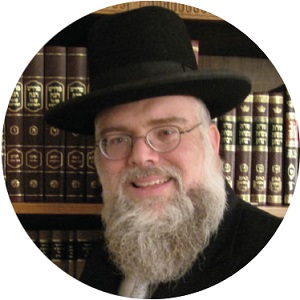Like a Mother’s Love

What drives so many of our brethren who dwell in Artzeinu Hakedoshah to advocate for aliyah at every opportunity?

A
nyone who has ridden in an Israeli taxi can safely assume two things. One, the driver will take you where he feels you need to go (“What do you mean you’re not going to the Zvehiller Rebbe’s kever ? I’ll take you there right now.”) Second, he moonlights as an agent for the Immigration and Absorption Ministry. Whatever your driver’s religious commitment, once your chutznik accent gives you away, you will not be able to avoid the question of when are you making aliyah. If you dare respond that you have no such plans, you had better be prepared for the sales pitch that is sure to follow.
I recall one such conversation the last time I was privileged to visit Eretz Yisrael, a year and a half ago. My driver, a very sincere and sweet man, was interrogating me about why I insist on living in chutz l’Aretz. I told him we were toying with the idea of making the move one day but were not quite ready yet. My wife, I explained, was especially excited about the prospect of someday living in Eretz Yisrael because, as I put it, she is a “fervent Tzioni.”
This comment thoroughly bewildered the driver. He did a double-take at my rabbinical attire to make sure he heard me right. “Adoni! Ishtecha Tzionit?”
I quickly put him at ease and told him that my wife fervently prays every day, “V’sechezenah eineinu b’shuvcha l’Tzion b’rachamim.” That is the Tzion of her dreams, and in fact the focus of everybody’s tefillos. For once, I got the best of a taxi driver.
What is it that drives so many of our brethren who dwell in Artzeinu Hakedoshah to advocate for aliyah at every opportunity? And how is it that they possess a passion for Eretz Yisrael that sadly many of us chutznikim do not?
Sacred Ground
It is pretty clear from the narrative at the very end of Maseches Kesuvos that Chazal Hakedoshim wanted us to feel a great love for Eretz Yisrael. The Gemara describes how Amoraim literally kissed the stones of Acco upon entering Eretz Yisrael, and got down on the ground and rolled in its holy earth. The Maharal tells us that Eretz Yisrael’s land, its dirt, and its air, all have special qualities not found anywhere else on Earth.
A visitor to Eretz Yisrael went to see Rav Eliezer Shach ztz”l and asked him where he should spend his time during his two-week stay. Rav Shach told him to spend his days in the local beis medrash, for “avira d’ara machkim” and “ein Torah k’Toras Eretz Yisrael.” He would never have this opportunity outside the holy air of Artzeinu Hakedoshah. Rav Chaim Zaitchik ztz”l quoted the Alter of Slabodka, who was asked why he relocated to Eretz Yisrael when he was already at an advanced age. The Alter answered that it was worth coming simply to breathe the air of Eretz Yisrael.
Furthermore, the Gemara records how Rav Ami and Rav Asi would be careful to move out of the hot sun into the shade to avoid the blistering heat of Eretz Yisrael. Rashi understands that their motive was to avoid speaking ill of Eretz Yisrael. The Ri Migash interprets the Gemara slightly differently. He says that these Amoraim wanted to deepen their love of Eretz Yisrael by enjoying the feeling of relief from the shade of the Holy Land. Some people apparently took this gemara very seriously; Rav Yitzchok Zilberstein attests that in the home of a certain talmid chacham, a sign in front of his air conditioner read “mazgan Rav Ami v’Rav Asi.”
I recall visiting my uncle, Rav Shloima Margolis ztz”l, who settled in Bnei Brak after a long career in rabbanus in Boston. It was summer, and many of us are familiar with the tropical climate in that part of Eretz Yisrael, where temperatures way beyond 100 degrees are not uncommon, with humidity to match. My uncle asked me how my trip was, and I reflexively commented that it was so hot and muggy. His demeanor, usually sweet and Zeide-like, abruptly became very serious.
“Nu, azoi redt men oif der Land? [Is that how you speak about Eretz Yisrael]?” he admonished me.
I was both humbled and disappointed in myself that I had sounded like the Meraglim, who could say nothing about Eretz Yisrael beyond its perceived shortcomings.
Land of Feelings
Years later, I came across a vort in my uncle’s sefer, Darkei Hasheleimus, that taught me how we need to relate to Eretz Yisrael, and how my attitude needed to change. We are probably familiar with Chazal’s words on why the parshah of the Meraglim is written after the incident of Miriam’s lashon hara on Moshe Rabbeinu. It is the Torah’s way of teaching us that the Meraglim should have learned a lesson from Miriam’s mistake and not repeated the transgression by slandering Eretz Yisrael.
The question arises: Eretz Yisrael is not a human being — it is land. Although it is true that we should not speak about Hashem’s gift to His people this way, is it really comparable to lashon hara about a person? The answer my uncle suggests is that we should relate to Eretz Yisrael the same way we relate to human beings. And just as we must not speak ill of another human being, neither must we denigrate our beloved home. The riveting words of the Navi Yeshayahu, “And Tzion said Hashem has abandoned me and forgotten about me,” as well as the comforting words of Nachamu, “Speak to the heart of Yerushalayim,” were certainly meant evoke images of Tzion as a live being, not just as a coveted piece of real estate in the Middle East.
If we examine the nusach of the last group of Kinnos we recite on Tishah B’Av, we will see how the paytanim, most notably the greatest Tzioni of his era, Rav Yehudah HaLevi, brings this point home. From the very first verse (as translated in the ArtScroll Kinnos) — “Tzion, will you not inquire about the welfare of your imprisoned ones?” — and further on, “When weeping over your suffering, I am [like] a jackal, but when I dream of the return of your captivity, I am a harp for your songs,” we are meant to feel that we are connecting to something tangible and real. There is a constant stream of emotion, vacillating between pain and love, that we express while mourning Yerushalayim and begging for our return that sounds exactly like we are speaking with a long-lost friend.
Where does this feeling come from? After all, the Torah never mandated this love. Even the mitzvah to live in Eretz Yisrael is the subject of great debate among the Rishonim and halachic authorities throughout the ages. What is it that gives us this feeling of love toward Eretz Yisrael? Why do we mourn our separation from it with the intensity of one who has lost a close relative?
Source of Sustenance
The Maharal, in a few succinct lines, gives us direction and insight. He writes that everyone has a bond to Eretz Yisrael. This is why the Gemara, in Maseches Berachos, quotes Rav Yochanan’s amazement that people in chutz l’Aretz can live very long lives, for the pasuk says, “L’maan yirbu yemeichem... al ha’adamah.” Only Eretz Yisrael seems to be capable of supporting long life. As the Maharal puts it, “[A Jew] leaving Eretz Yisrael is akin to a tree being uprooted from its roots, when even replanting it will not facilitate its survival.”
The Maharal explains that our neshamos receive sustenance from Eretz Yisrael, even if we are not conscious of it. To a certain degree, it is the source that gives us spiritual life. We can subconsciously feel it even if our intellect may not.
Many of us have a custom to eat the special fruits of Eretz Yisrael on Tu B’Shevat. The significance of the day derives from the halachah that tithes of fruit may not combine fruit from one year’s bounty with fruit from that of the next. Tu B’Shevat was chosen as the demarcation line between years, for this purpose, because that is when the sap begins to run and the trees awaken from their winter slumber in Eretz Yisrael. Hence the custom to eat peiros from Eretz Yisrael on that day.
The Sma”k (Sefer Mitzvos Hakatan) writes that we should praise Eretz Yisrael not for its physical attributes but only for its spiritual ones, such as the opportunities it offers to fulfill unique mitzvos, since those are what drive our longing for it. The Bach disagrees and maintains that kedushas Eretz Yisrael impacts every single thing. The fruits of Eretz Yisrael draw not only nutrients from the ground, but kedushah as well. By eating those fruits, we ingest spiritual sustenance as well as physical nourishment.
This is a very enlightening insight to share with our talmidim and children, who often come away from Tu B’Shevat having learned nothing more than bokser is Yiddish for carob and it is actually edible. Eating these fruits is an avodas hakodesh if done with the proper intention.
To this day, I continue to feel the inspiration I gained from a visit to Rav Yossele Sheinberger ztz”l in Yerushalayim. When his daughter placed a plate of grapes on the table, he said excitedly, “Zeit to’eim fun peiros Eretz Yisrael [Taste the fruits of Eretz Yisrael]!” He was expressing the joy he took from the sweetness of the holy fruits of our treasured Land. A sweetness infused with his visceral love.
Mother Land
There is an expression in the Ramban in his drashah for Rosh Hashanah, in which he refers to his move to Eretz Yisrael, which may shed some light on this idea. “That [Hashem] has taken me out from my land and moved me from my place, I left my home, abandoned my property, and became like a raven to my children, is because my desire is to be in my mother’s bosom — l’fi she’retzoni b’cheik imi.” The Ramban was equating being in Eretz Yisrael with coming home to his beloved mother.
I believe that we can gain a clearer understanding of this in light of the words of the Maharal. Eretz Yisrael, on a level we may not intellectually appreciate, gives us life — just as our mother did and will continue to do so long as she is able. The Ramban’s sensitivity for this was such that he was compelled to leave everything behind to reunite with that source of life. Undoubtedly, those who were moser nefesh to follow his example felt the same way.
The Torah never tells us to love our parents, because this is unnecessary. Nobody needs to be told to love his mother or father; it is instinctive and natural. Somewhere in the deep recesses of our neshamos, we sense that this is true for us of Eretz Yisrael as well. For this same reason, the Torah never commands us to love Eretz Yisrael. This love is just as instinctive, and just as natural, as the love one has for his parents.
And Eretz Yisrael reciprocates. The pesukim in Yeshayahu are replete with references to the mourning of Mother Tzion for her lost children, and her joy in welcoming them home.
Moshe’s Wish
Without a doubt, our greatest desire to live in Eretz Yisrael b’binyanah is to fulfill all the mitzvos it affords us. A simple reading of the Gemara (Sotah 14a) would seem to bear that out. “Why did Moshe desire to enter Eretz Yisrael? Did he need to eat its fruit? Rather, Moshe said, ‘Yisrael is commanded to perform many mitzvos, and they can only be fulfilled in Eretz Yisrael. I wish to enter the Land so they can be fulfilled by me.’ ”
The basic level understanding of this g emara is that Moshe wanted the opportunity to fulfill the mitzvos that are unique to Eretz Yisrael, such as terumos and maasros. Meshech Chochmah asks why the Gemara didn’t simply answer that he wanted to fulfill the mitzvah of yishuv Eretz Yisrael, according to the opinions that it is indeed a genuine mitzvas aseh from the Torah.
Perhaps the answer is that the Gemara never meant the mitzvos specific to Eretz Yisrael, but rather any mitzvah. As the Ramban writes on parshas Eikev, no mitzvah can be fulfilled perfectly outside of Eretz Yisrael. He invokes the pasuk in Yirmiyahu, “Hatzivi lach tziyunim,” that the point of fulfilling mitzvos outside of Eretz Yisrael is to ensure that we don’t forget how they go once we come back.
Moshe Rabbeinu was asking to enter Eretz Yisrael because he would have never had the opportunity to fulfill any mitzvah in its perfect form. This is what he meant by “Yisrael was given many mitzvos [harbei mitzvos nitztavu Yisrael], a veiled reference to “hirbah l’hein Torah u’mitzvos,” an expression of reference to the entire gamut of mitzvos. Certainly, Moshe’s fervent wish was to be able to experience the highest level of avodas Hashem. It should be ours as well.
Teach the Children
Given that there is an inherent natural love we should possess for Eretz Yisrael, one may wonder why we have not made this a focus of our educational system here in chutz l’Aretz. Has its accessibility as a vacation destination dulled our sense of awe that the Amoraim felt upon arriving on the shores of Acco?
I recall a discussion I had many years ago with a world-renowned expert in the world of chinuch. He mentioned his desire to design a curriculum that would instill the importance and centrality of Eretz Yisrael in our lives. I pointed out to him that we already have many opportunities to do that without needing to create new lesson plans. If, for starters, we merely pointed out the many references in Bircas Hamazon and Shemoneh Esreh to Eretz Yisrael, the Beis Hamikdash, and anything related to them, we could be well on our way to accomplishing that, without sophisticated materials and tech-savvy presentations.
Either way, I always found it puzzling that this never seemed to be a high priority in our yeshivos and Bais Yaakovs. Maybe the time is ripe to reconsider that. If we don’t know what there is to love about Eretz Yisrael, and why we should love it, how will we ever touch the levels of the chachmei haTalmud who rolled in the land and kissed its stones as a demonstration of that love?
We may even have to teach the fact that this love was meant to be instinctive. We don’t need to reinvent the wheel to convey this. We simply need to verbally express and model a heartfelt fervor whenever we come across one of the many references to Eretz Yisrael in our tefillos and the seforim we teach. Wouldn’t it be tragic if a child who was separated from his mother for many years had to be taught how to love her? Isn’t it just as tragic if we need to do the same as it relates to our relationship with Artzeinu Hakedoshah?
Until We Return
When I was a young child, my Tanta Esther was the only aunt on my father’s side who survived Churban Europe. We only saw each other once in a while, as I was growing up in Boston and Tante Esther lived in faraway New York. Whenever she did see me, she would spread her arms wide and ask, “Henoch’l, how much do you love me?” If I recall correctly, the more I said (a hundred much?) the bigger the payoff was.
If Tzion were to talk directly to us today and ask, “How much do you love me?” what would we answer back? Would we know why? Would we be able to tell the truth? Would we even understand the question? Will our children?
Eretz Yisrael is on everybody’s mind. Let’s all continue our efforts to daven for her, build zechuyos for her, and just as much as anything, express our love for her. A mother doesn’t abandon her children. Neither will Eretz Yisrael.
As Rav Yehudah HaLevi wrote in kinnos about Eretz Yisrael, “My soul intensely yearns to behold the splendor of your radiance, may peace be yours and may there be peace to those who help you.” Kein tihiyeh lanu.
Rabbi Plotnik, a talmid of the yeshivos of Philadelphia and Ponovezh, has been active in rabbanus and chinuch for 25 years and currently serves as ram in Yeshivas Me’or HaTorah in Chicago.
(Originally featured in Mishpacha, Issue 996)
Oops! We could not locate your form.






